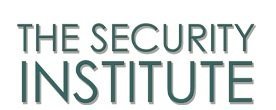Synopsis
This programme is designed as a supporting vocational programme for those working in the private security industry. It is a short practical programme covering the initial responses to an attack such as an attempted strike or grab. While designed with the security industry in mind it is applicable to all areas where the threat of personal attack exists, this includes work related risks. It is also beneficial to those who feel vulnerable in any personal or non-work-related setting.
Examples of work-related settings include:
- Security Staff
- Hospital Accident and Emergency Staff
- Care Workers
- Lone Workers
- Bus and Taxi drivers
- Traffic Wardens
- Vehicle Immobilisation / Clamping Staff
- Environmental Officers
- Process Servers
- Tiger Kidnapping Targets
- Aviation Crews
- Those Handling Cash or Valuables
- Night Porters, Caretakers and Receptionists
Profile and Duration
This is a part time programme, which necessitates day release or evening-course environment participation. This is a one-day classroom based practical skills programme.
The security industry certification body, the Security Institute certifies the programme.
Purpose
The purpose of this programme is to equip the candidate with the knowledge and practical skills to effectively respond to a range of personal physical attack scenarios.
Trainer and Venue
The Security Institute manages a network of trainers who are active across the country. All trainers must go through an approval process. On satisfactory completion of this process, trainers are entered onto the Security Institute’s National Register of Approved Trainers. These trainers operate locally and will carry out the registration, delivery and assessment aspects of each programme.
They operate under the auspices of the Institute and follow the criteria laid down by the Institute. All of these trainers are also approved by the industry regulator, the Private Security Authority.
Trainers promote and deliver the programmes and are the first and daily contact point with all candidates. All candidates register with these trainers as Security Institute candidates and take part in a Security Institute programme, delivered by an approved trainer. Trainers set the dates, select the appropriate venue and collect fees.
While it is beneficial to deal locally with a trainer on most issues, the Security Institute can always be contacted directly by candidates in the event of any problems.
Educational Requirements for Entry
To access programmes leading to this award, candidates should have reached the standards of knowledge, skill and competence at Level 3 or Junior Certificate on the National Framework of Qualifications. Achievement of this may be through a formal qualification or relevant life and work experience. This means that entry is largely open to all adult candidates and there are no formal qualifications required to participate.
Non-Educational Requirements for Entry and Certification
- You must sign a Health and Fitness declaration.
- You will need to provide your Personal Public Service Number (PPSN).
- You must be over eighteen years of age.
- You must be competent in the English language.
- You must complete the Security Institute of Ireland Registration Form.
Diverse Demographic
While there are requirements to have a level of physical fitness and English language, these are reasonable and important for those going on to employment. Thousands of candidates go through Security Institute programmes every year. They are from a diverse range of nationalities and backgrounds. The age profile can start at eighteen years of age with some candidates in their sixties. Most candidates have achieved success and improved their employment potential.
All candidates are assured of an interesting and engaging learning experience with topics that not only satisfy employment knowledge and skills but also broader life skills. No previous formal qualifications are required to gain entry and to achieve success on these entry level vocational programmes.
Security Institute management and trainers are committed to assisting all candidates achieve their desires status.
Where potential candidates feel there may be insufficient information within this document to allow them to make an informed decision as to their ability to complete the programme, they may discuss this with the programme trainer. The trainer will provide further information and documentation to ensure candidates are equipped to participate.
Candidates register through a registered Security Institute trainer. The trainer then electronically submits the registration details to the Security Institute.
Dress Code
Candidates are advised that physical activity / movement is involved in relation to these skills. Clothing must be loose enough to allow freedom of movement, footwear must be flat, fully enclosed (no sandals / flipflops / high heels etc.) and have some grip, tracksuit and trainers is the most appropriate dress for this. Clothing choice should also consider modesty and dignity.
As a general rule, wearing jewellery during physical skills training should be avoided, loose fitting items such as earrings, bracelets, necklaces or a watch present a risk of injury and are not permitted.
Fingernails should be short. Loose hanging hair should be tied back.
Candidates are required to participate fully in warm up exercises before physical activity.
Content Overview
While the substantial body of the programme will focus on practical skills, some knowledge and theories are considered relevant and are included.
1. Legal Considerations
|
2. General Awareness
|
3. Personal Attack Responses
|
Assessment Summary
The demonstration of two practical skills scenarios is used to test the candidate’s skills and knowledge in blocking strikes and breaking away from grabs. Skills demonstrations also focus on effective communications and de-escalation as well as knowledge of the topic.
Programme designers have determined that two skills demonstrations are appropriate:
- Demonstrate Blocking Techniques – Value 40 Marks (pass mark 20)
- Demonstrate Breakaway Techniques – Value 60 Marks (pass mark 30)
Certification
Successful completion of this programme leads to:
- Security Institute of Ireland Foundation Certificate in Responding to Threats and Violence.
Registration
Please contact your local approved trainer for course registration.
